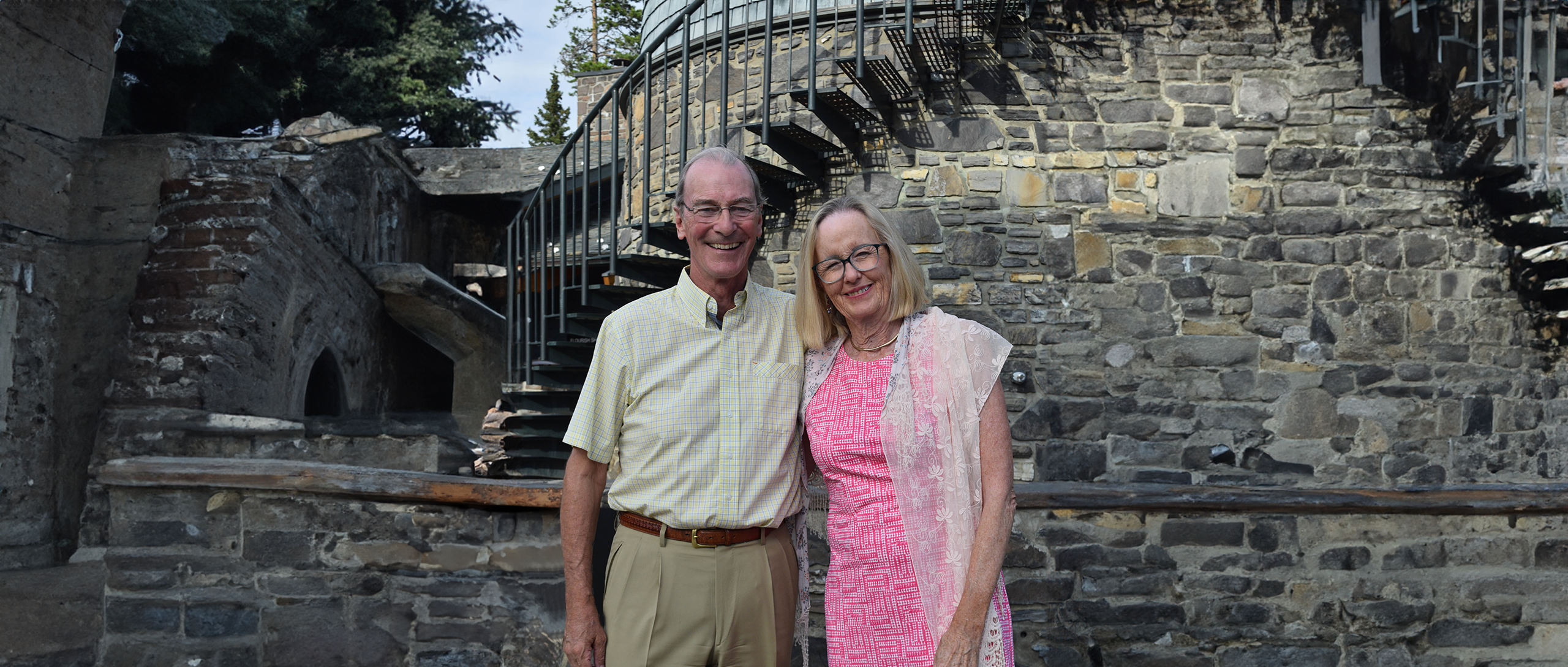When training in Ireland, at the start of his career, Dr. Bryan Donnelly did daily early morning rounds. One responsibility was to provide pain relief for those men dying from prostate cancer (about one third of the men). After months of witnessing painful death after painful death, he eventually got fed up.
He resolved to find a way for men to avoid this pathway.
While it was his vision to create a one-stop-shop for men with prostate cancer, it took countless dreamers, believers and doers to make it happen. With generous donations from Calgarians, including Doc Seaman and Brett Wilson, the Prostate Cancer Centre (PCC) was realized. Twenty-five years later, it’s now a world-leading, internationally recognized, patient-centered destination for men and their families who are on a prostate cancer journey.
It also took the immense support of his wife, Evelyn. They met during med school and now have four children, eight grandchildren, and 50 years of marriage. Side-by-side they embarked on the PCC adventure in the name of the patient.
They describe Ireland (where they grew up) as a people society. They were taught that when somebody comes in to see you, you’re in a very privileged position because you hear very private things. You look after your patients like you would your mother or father. And each patient is an individual, not a number, and their life is precious.
“Medicine is a way of life to us, not a job,” says Evelyn. “As a family medicine doc myself, I understand the desire to help people. And when Bryan gets a bee in his bonnet it has to be attended to,” she laughs. “Bryan is a thinker and a doer. The patient supersedes everything, including himself. I think it was important he had this drive to help, and it was part of his happiness.”
Bringing everyone together under one roof – the urologists, radiologists, nurses, researchers and patients – was key to transforming patient care, collaboration and research. It also led to men getting diagnosed and treated faster. In fact, they got the biopsy-to-diagnosis time down to two weeks. A vast improvement from the 95 days it took in the old system.
“That was a satisfying time,” says Bryan. “Unfortunately, we don’t enjoy those same timeframes today because the system can’t handle the demand. Our population has tripled, we have the same number of urologists we did 25 years ago, we don’t have enough technical staff or operating rooms, and the incidence of prostate cancer keeps going up.”
On curing prostate cancer
Bryan says there won’t be one magic bullet in finding a cure. But early detection is the single most important part of a cure. PCC has championed this all along, including creating awareness about prostate cancer.
“When we first started, one of the foremost objectives was creating awareness because people didn’t know about prostate cancer,” says Bryan. “Men paid little attention to their health, let alone would make a doctor appointment and do a follow-up. When the MAN VAN® came out, it truly changed the game by going where the men were, testing them, and getting them more info about their health.”
The MAN VAN® is PCC’s signature community outreach program. Since hitting the road in 2009, it has served more than 67,000 men in 150 communities.
And it has saved lives.
“I’ll never forget the early days of the MAN VAN® and a young man from Tsuut’ina,” says Bryan. “He happened to just come across it and out of curiosity got tested. His PSA was high, and I saw him quickly. We got him diagnosed and he had advanced prostate cancer. He’s still with us today and doing well. Without the MAN VAN®, he would have died years ago. There are lots of stories like that.”
Bryan says managing prostate cancer and expanding our knowledge and understanding of genetics and genetic mutations is a pathway that will open up new treatment opportunities. But it’s expensive with testing at about $1,100 per patient. A recent donation has helped the PCC initiate such a screening program for some newly diagnosed men, which will grow with time.
The next 25 years
While Bryan looks ahead to full retirement, he hopes the PCC remains focused on the patient, the family, and providing the best service. He says the PCC is forging ahead and has a life of its own. The new prehabilitation clinic is an example of this innovative approach, which “tunes up” patients for their surgery. And he’s grateful for the dedication, energy and love people have – and continue – to put into it.
———————
September is Prostate Cancer Awareness Month, a time to help people learn about prostate cancer and support those who are affected. It’s a time to join together to transform the future of prostate cancer for the 27,900 Canadians – and 3,200 Albertans – expected to be diagnosed with prostate cancer this year.
The Prostate Cancer Centre celebrates 25 years this month. The doctors, nurses, researchers, volunteers, employees, and patients and their families have been instrumental in advancing early detection, research, patient care, advocacy, funding, awareness, and so much more.


